Learn the warning signs that your insurance company may be offering less than you deserve and how to fight back with legal support from Brent Harsh Law.
When you’re hurt in an accident and it’s somebody else’s fault, it can impact every aspect of your life. You deserve to be taken seriously and paid the compensation necessary to cover your immediate and future costs.
Unfortunately, once you’re through the initial aftermath of your accident, insurance companies can enter the picture and cause additional stress when they try to undercut your valid claim and payout a fraction of the compensation you’re owed.
How to Spot a Lowball Offer
A lowball offer is a first settlement proposal that’s far less than many accident victims truly deserve. Insurers are for-profit companies that minimize payouts when they can. Unfortunately, many personal injury victims don’t recognize these tactics and feel pressured to accept a low offer without knowing they can negotiate.
Bad Faith Moves the Insurance Company Makes
Common signs that an insurance company is trying to maximize its profits at the cost of injured individuals generally fall under the following categories:
- The offer arrives too quickly.
- They rush you to settle.
- They explain away your injuries.
- They ignore the full extent of your damages.
- They try to blame you for the accident.
- They won’t show their work.
- They stop responding.
Recognizing these signs can help you pause, protect yourself, and demand the full compensation you’re entitled to.
Seven Signs Your Insurance Company is Lowballing Your Personal Injury Claim
The Insurance Company Makes a Quick Settlement Offer
Lowball offers often come quickly after your accident. While insurance companies have deadlines to respond to claims, if the initial offer comes fast, it’s a red flag, not a good-faith offer. It’s in the insurance company’s interest for you to settle quickly; once you settle, a lawsuit is off the table.
The faster you settle, you’ll have less opportunity to question how much compensation you should receive or contact a lawyer. A typical claims process involves lengthy negotiation over months, so if it’s moving much more quickly, it’s smart to question it.
You’re Pressured to Settle Quickly
While wanting to move on with your life after an accident is understandable, a quick settlement offer is typically a lowball offer. Insurance claims should be more than a brief document; a well-detailed claim will include extensive documentation of the accident that proves liability and outlines all the physical, emotional, and financial damages you sustained due to the accident.
An insurance adjuster prioritizing speed over thoroughness is skipping over all the evidence needed to give you a fair settlement.
Insurers Downplay or Dispute Your Injuries
Settlement amounts depend on how you were injured, what type of injuries you sustained, how severe those injuries were, and what your short and long-term recovery outlook is.
So, insurance adjusters may question whether your injuries are real, say you’re exaggerating, dispute your medical bills, or even claim your injuries are from a pre-existing condition rather than the accident. If they question whether you need medical treatment or refuse to consider long-term medical treatment for your injuries, they may be providing a lowball figure.
You can protect yourself by having evidence of your injuries available to counter these bad faith actions by the insurance company: photos of your injuries, medical records, imaging files, and written notes from your medical providers attesting to the cause of your injuries.
Insurers Leave Out Certain Damages from Your Settlement
Every accident victim deserves maximum compensation, and when an insurance company denies some of your damages, it can be incredibly distressing. Any accident can involve different types of damages. Economic damages (lost wages, property damage, etc.) are typically more straightforward.
For example, car repairs have specific line items and totals. On the other hand, non-economic damages like emotional losses are harder to quantify, and thus, easier for insurance companies to deny.
Your pain, suffering, and emotional distress matter; a personal injury lawyer can ensure these insurance companies include these emotional damages in the claim.
Insurers Try to Blame You for the Accident
An insurance company can avoid paying what you’re owed if it considers you partially or fully liable for your accident, even if the evidence shows otherwise. Car, truck, motorcycle, or other accidents are common targets for this blame-shifting.
Say you were in a car accident, the other party is 100% at fault, and you have evidence to prove it. An insurance company may try to claim you were 30% responsible, so they can only pay you 70% of the total compensation.
Insurers Won’t Show Their Work
You always have the right to ask how your insurance adjuster arrived at the settlement amount. If they are cagey or refuse to explain their calculations, they may try to give you a significantly lower settlement than is appropriate for your damages.
In some cases, they’ve rushed through the claim quickly, missing crucial evidence as to liability, injuries, or damages, or they knew you could get more and thought you wouldn’t question the settlement offer.
Insurers Stop Communicating After You Decline Their Offer
When you reject a lowball settlement offer, insurers often stop responding to messages and don’t pick up calls. This delay tactic is typically used to either run the clock out on the statute of limitations or bank on you getting frustrated enough with the drawn-out process to accept the claim.
Under Nevada law, you have up to two years from the date of your accident to file a claim. So, no matter what an insurance company tells you, you’re legally protected for that timeframe.
But if the insurance company refuses to communicate and offers a lowball settlement, it’s a good idea to consult an experienced attorney, like Brent Harsh at Brent Harsh Law.
How to Protect Yourself from Insurance Company Tactics
Document Your Damages Thoroughly
Your documentation is your first defense against insurance companies’ lowball settlement offers. After your accident, collect evidence:
- Photos of your injuries
- Medical documentation (current medical bills, medical expenses, etc.)
- Doctor’s notes about the extent of your injuries and treatment requirements
- Police reports
- Witness statements
- Proof of lost wages
- Vehicle repair documents, if relevant
Remember That Settlements Are Negotiable
You don’t have to accept the insurance company’s first offer. These companies bank on accident victims following the path of least resistance. You’re in pain, overwhelmed by bills, and trying to get back to normal. It’s the furthest from fair. It’s the furthest from fair, and accepting a low offer is a common mistake when filing a personal injury lawsuit.
A Low Offer Is Just the Beginning of the Negotiation
Unscrupulous insurance companies will take advantage if you mistakenly accept their first offer. Insurers offer settlements that allow them to save money, without regard for what compensation is just and fair for you. Do not accept the first offer, and be ready to negotiate.
The Insurance Company Is Not on Your Side
You must advocate for yourself and find experienced personal injury lawyers to help you recover compensation. While, hopefully, this is the first and only time you’ve been through an accident like this, personal injury attorneys see these cases daily.
They know all the tricks insurance companies pull to weasel out of paying. They can point out flaws in the insurance company’s offer and calculations, provide strong evidence in your favor, and push until insurance companies pay out a reasonable settlement offer.
A Personal Injury Lawyer Is On Your Side
Speak with a personal injury attorney at Brent Harsh Law to understand your claim’s full value. Our experienced lawyers can identify weak points in the insurance company’s offer, collect strong supporting evidence, and push for the fair compensation you’re owed. Before your consultation, take a few minutes to prepare for your first meeting with a personal injury attorney to ensure you bring the most helpful documentation and questions.
Think You’ve Received a Lowball Settlement Offer?
Having an insurance company low-ball your claim adds insult to injury.
Our personal injury lawyers at Brent Harsh Law have provided dedicated accident victim advocacy in over 150 cases in Northern Nevada to help our clients move forward after the unthinkable. We’d be honored to protect you against these insurance companies.
Call us at 775-324-3380 to schedule a free consultation and initial case review. We can help you determine how much your claim is worth, and when the insurance companies try these tactics, you can direct them to us instead of dealing with the stress yourself.




 Pursu Agency
Pursu Agency